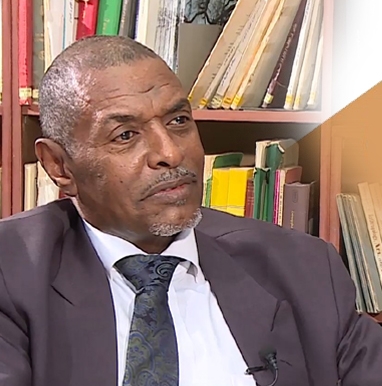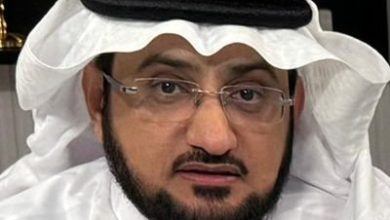In the theater of political and diplomatic warfare

By Dr. Ibrahim Al-Bashir Othman Al-Kabashi
Former Ambassador / Professor of Political Science
No war in history, like the ongoing war in Sudan, is fought on just one stage. There is a temporary military battlefield, regardless of how long it lasts, and a much longer and deeper political-economic-values theater. This latter stage is the one for which armies are mobilized and wars are fought to achieve strategic objectives. As Clausewitz said, “War is the continuation of politics by other means.”
The people of Sudan and its leadership should not forget, even for a moment, that an even more pressing battle must be fought on the political-diplomatic front, just as fiercely as on the military battlefield. Just as the enemy, before April 15, 2023, gathered all necessary resources for war—troops, mercenaries, training, funding, weapons, and international and regional diplomatic support, even buying the loyalty of those willing to sell—it is today mobilizing, with the same tools and methods, the stances of states, leaders, and organizations on regional and international levels, to prevent Sudan from achieving a decisive victory that would liberate its pure national will and realize its full independence and sovereignty.
The enemy today is assembling all the necessary temporary compromises to secure what it couldn’t achieve by force of arms in order to fulfill its strategic goals. The ultimate strategic objective of the coalition that launched this war on Sudan has become clear through the daily actions and words of this conflict: to dismantle Sudan as a state and remove it from the world map, after destroying its army, with the country’s inheritance to be divided among the four alliance blocs in varying proportions.
This alliance that has engaged in war against Sudan consists of four interconnected and mutually supportive blocs, each with its designated role according to the available circumstances within its sphere of influence. But the ultimate strategic goal remains the same: the dismantling of Sudan, beginning with its army.
The first bloc: An international coalition led by Britain, the U.S., France, Israel, and the United Arab Emirates. It appears that the partners in this bloc have entrusted, or that the UAE itself voluntarily assumed, the responsibility for control, direction, and leadership, including the financial and logistical costs and other requirements of coordination and leadership. In the capitals of this bloc, the project of dismantling Sudan was designed years ago, when it was still a “raw theory” being studied behind closed doors in their intelligence agencies and strategic think tanks, waiting for the conditions to be ripe for its implementation. These conditions were gradually created, culminating in the movement that ended the rule of the National Congress Party. With the fall of the National Congress, the biggest obstacle to the project of dismantling Sudan was removed. We saw how the ambassadors of this bloc, with overwhelming arrogance, took the lead in that movement, openly violating Sudan’s sovereignty in an unprecedented manner in the history of international diplomacy. Modern international relations have never seen such brazen disregard for diplomatic protocol, which has been strictly regulated since the Vienna Conference of 1815, through all the twists and turns of international relations, to the United Nations Charter, and finally to the 1961 Vienna Convention on Diplomatic Relations, which meticulously outlines the conduct of diplomatic representation. The 1963 Vienna Convention similarly regulates consular relations. These are the legal instruments governing diplomatic representation. However, the ambassadors of this bloc have consistently violated the sovereignty of Sudan, as members of the third bloc (as detailed below) worked under the direct administration of this first bloc. It was this bloc that paid, and continues to pay, their salaries and the costs of their movements, and it was this bloc that directed Sudan’s domestic and foreign policies during the years of Hamdok and the Forces of Freedom and Change (FFC), to which their performance reports were submitted. This bloc even went as far as secretly addressing the UN Secretary-General in January 2020, in the name of Hamdok, to establish a political mission to fully manage Sudan’s administration in all its facets, covertly seeking to eliminate Sudan’s independence and place the country under international mandate. This was the wretched state of “unfortunate slavery” brought about by the great coma that Sudan fell into at the end of 2018 and beyond. This state offered an opportunity for foreign forces, long lying in wait, to colonize Sudan.
The term “unfortunate slavery,” by the way, was coined by the renowned scholar Abdulrahman Al-Kawakibi in his book The Nature of Despotism and the Struggles against Enslavement. It refers to the domination and exploitation of a weakened state by foreign forces lying in wait, when fate decrees that the state slides into a deep abyss of chaos. This bloc, long lying in wait for Sudan, seized upon that moment of weakness to take control of the country.
The second bloc: A regional alliance composed of Chad, certain prominent figures from the Sahel countries, the Central African Republic, Kenya, Uganda, Ethiopia, Haftar’s Libya, South Sudan, and key elements in regional organizations (the African Union and IGAD). This bloc has been infused with substantial political money in various forms, to the point where reports of bribery have become widespread across Africa, unprecedented in history. The aim of this bloc is to provide regional continental support, which the first bloc would then develop, upon its successful conquest of Sudan and destruction of its army, into international backing that would recognize and support the outcomes of their ambitions for the disintegration of Sudan



